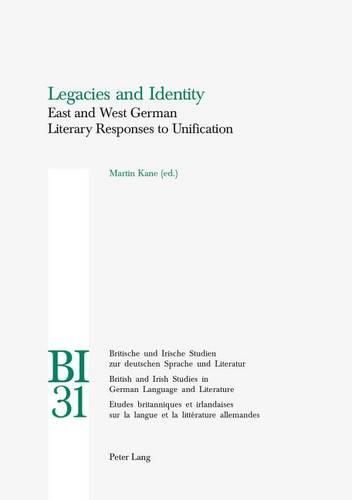Readings Newsletter
Become a Readings Member to make your shopping experience even easier.
Sign in or sign up for free!
You’re not far away from qualifying for FREE standard shipping within Australia
You’ve qualified for FREE standard shipping within Australia
The cart is loading…






This volume seeks to trace the robustly critical process of historical, political and personal self-examination to be found in German literature of the 1990s. Scholars from Australia, Britain, Germany, and the USA have contributed essays which deal with a broad range of East and West German writers (Biskupek, Grass, Hilbig, Koenigsdorf, Maron, Mensching, Walser, Wenzel, and Wolf) as well as with general topics such as literature and the Stasi, and the response to the aftermath of unification to be found in autobiographical writing, lyric poetry, satirical fiction and cabaret texts. For all their diversity, a common thread can be discerned in these writers and the literature they have produced: a concern for the particularity of the East German experience, past and present, and a desire to explore that discrete identity - in both its positive and negative aspects - which stubbornly persisted over a decade in which the citizens of the German Democratic Republic saw themselves, their institutions, and their culture, swept up and consigned to oblivion.
$9.00 standard shipping within Australia
FREE standard shipping within Australia for orders over $100.00
Express & International shipping calculated at checkout
This volume seeks to trace the robustly critical process of historical, political and personal self-examination to be found in German literature of the 1990s. Scholars from Australia, Britain, Germany, and the USA have contributed essays which deal with a broad range of East and West German writers (Biskupek, Grass, Hilbig, Koenigsdorf, Maron, Mensching, Walser, Wenzel, and Wolf) as well as with general topics such as literature and the Stasi, and the response to the aftermath of unification to be found in autobiographical writing, lyric poetry, satirical fiction and cabaret texts. For all their diversity, a common thread can be discerned in these writers and the literature they have produced: a concern for the particularity of the East German experience, past and present, and a desire to explore that discrete identity - in both its positive and negative aspects - which stubbornly persisted over a decade in which the citizens of the German Democratic Republic saw themselves, their institutions, and their culture, swept up and consigned to oblivion.